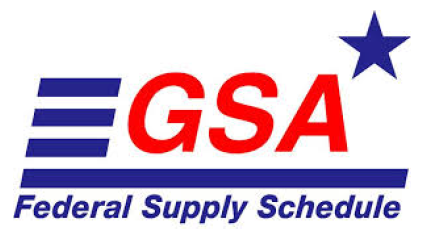Introduction
The Buy American Act (BAA) is a significant piece of legislation in the United States that affects how federal government agencies procure goods. For businesses aiming to enter the government contracting arena, understanding the BAA is crucial. This beginner’s guide will provide an overview of the Buy American Act, its requirements, and its impact on government procurement. By the end of this post, you’ll have a solid foundation to navigate the complexities of this legislation.
What is the Buy American Act?
The Buy American Act, enacted in 1933, is a federal law aimed at promoting the purchase of American-made goods in federal government contracts. The Act requires federal agencies to prefer U.S.-made products in their procurement processes, thereby supporting domestic manufacturing and labor. It applies primarily to contracts for the procurement of supplies and materials for public use.
Key Requirements of the Buy American Act
1. Domestic Content Requirement
Under the BAA, products are considered American-made if they are manufactured in the United States and the cost of their U.S.-made components exceeds a certain percentage of the total cost. This percentage requirement can vary depending on the specific procurement but generally hovers around 55% to 60%.
2. Exceptions and Waivers
The BAA includes several exceptions and waivers, allowing for the purchase of foreign-made goods under certain circumstances:
- Public Interest: If the head of the agency determines that applying the BAA is inconsistent with the public interest.
- Non-Availability: If the required goods are not available in sufficient quantity or quality from U.S. manufacturers.
- Unreasonable Cost: If the cost of U.S.-made goods is unreasonable compared to foreign-made alternatives, typically defined as more than a certain percentage above the cost of foreign goods.
3. Trade Agreements Act (TAA) Exemptions
The TAA provides additional exemptions by allowing procurement of products from countries that have trade agreements with the United States, thus exempting certain foreign-made goods from the BAA’s requirements.
Impact of the Buy American Act on Government Procurement
1. Preference for U.S. Manufacturers
The BAA gives a competitive edge to U.S. manufacturers by requiring federal agencies to prioritize American-made products. This preference helps to support domestic industries and maintain manufacturing jobs within the country.
2. Increased Compliance Requirements
For businesses, compliance with the BAA involves ensuring that their products meet the necessary domestic content requirements. This can include detailed record-keeping and verification processes to demonstrate compliance during audits or reviews.
3. Potential Cost Implications
Adhering to the BAA’s requirements can sometimes lead to higher costs due to the preference for U.S.-made goods, which may be more expensive than foreign alternatives. However, these costs are balanced against the benefits of supporting domestic industry and labor.
4. Opportunities for U.S. Businesses
The BAA creates opportunities for U.S. businesses to secure government contracts, particularly those in the manufacturing sector. By meeting the Act’s requirements, businesses can access a substantial market for goods and services, as federal agencies are mandated to prefer domestic products.
Navigating the Buy American Act
For businesses looking to work with the federal government, understanding and complying with the BAA is crucial. Here are some steps to navigate the Act’s requirements:
- Determine Applicability: Assess whether the BAA applies to your products and contracts. Not all government contracts are subject to the BAA, especially those involving services or small purchases.
- Evaluate Domestic Content: Ensure that your products meet the domestic content requirements. This involves calculating the percentage of U.S.-made components and ensuring they exceed the required threshold.
- Document Compliance: Keep thorough records of your compliance efforts, including sourcing and manufacturing details. This documentation will be essential in demonstrating compliance during audits.
- Monitor Changes and Updates: The BAA and related regulations can evolve, so it’s important to stay informed about any changes that may affect your compliance status or procurement opportunities.
- Seek Legal and Professional Guidance: Consider consulting with legal professionals or compliance experts who specialize in government contracting. They can provide valuable insights and assistance in navigating the complexities of the BAA.
Conclusion
The Buy American Act is a pivotal law in U.S. government procurement, designed to prioritize American-made goods and support domestic industries. For businesses seeking to enter the government contracting market, understanding the BAA’s requirements and impact is essential. By adhering to the Act’s provisions, companies can access a range of opportunities in federal contracts, while contributing to the nation’s economic growth and stability. Whether you’re a seasoned contractor or new to government procurement, keeping up-to-date with the BAA and its implications will be a critical component of your success.








